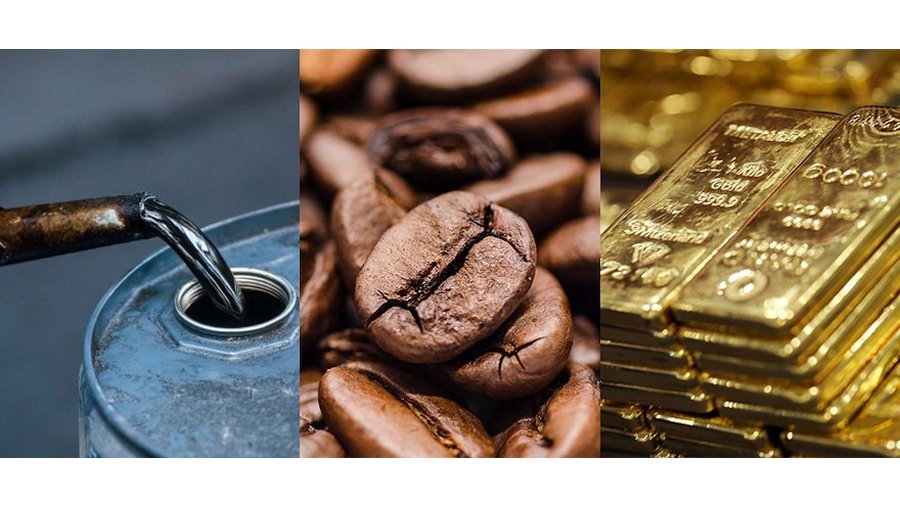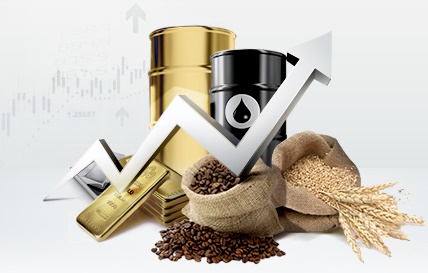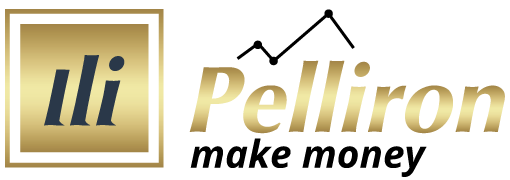
The whole essence of the relationship to trade in this market, in most cases resorted to speculative operations than to provide direct deliveries.
Those categories of the traded product can be distinguished certain groups of goods:
- Products of agriculture (coffee, corn, cotton, sugar, soybeans, corn).
- Metals - mostly precious metals and non-ferrous metals. Such as platinum, silver and gold. The most relevant of the non-ferrous metals are aluminum, copper, palladium, nickel.
- Hydrocarbon group and energy carriers. This category may include oil, fuel oil, gas, coal and oil products.
- Generally speaking one can count more than 70 goods and raw materials that are acceptable for the commodity market which occupy about 30 percent of the total trade area.
- To ensure stable function of the market and to increase the attractiveness of speculative interest its activities carried out by entering into futures contracts. Therefore these tools can be presented as an agreement of both parties to the transaction, cancel or make a change, in that it is already impossible before a certain date implementation of the agreement. But the owner of a futures contract has the right to speculate on them before the implementation date at a better price. As a result of these operations the physical delivery of the product is not performed.
- Since the 80s commodities as well as shares and bonds are beginning to become a full-fledged investment asset, however this trend is relatively commodity was not constant. Since the late 1970s primarily industrial companies as well as some speculators started using futures and options as derivatives of raw materials to hedge risks. It is possible to emphasize that in the current environment of rising inflation privilege of investing in raw materials is the possibility of additional portfolio diversification, as the attention to a particular range of commodities can be very attractive due to their minimal correlation with the securities market.
There are several ways in which we can profitably invest in the commodities market.

The first, and perhaps can be called traditional way of investments in organizations that produce the raw products, as well as organizations that serve them. Speaking about the investment business benefits (such as the possibility of increasing production and capitalization of the organization, even in an environment where raw material prices for the most part do not justify payment), it should be noted that there are also some disadvantages, namely: company shares value does not always show the situation with the prices of products and often depend on the general state of the market - a bear market is not conducive to the growth of stocks, taking into account the fact that in synchronization with the fall of stock indices can be seen, and the rise in commodity prices. The rise in commodity prices may be regarded by the market as a temporary trend that is not included in the value of shares. A very large impact on the capitalization of the organization can have a change in government policy, such as: the level of taxation, the amount of taxes that they can not allow organizations to benefit from the growth of prices for their products.
Also investments in certain companies associated with the need to read a quality management and involve additional risks such as: the ability to hide the facts of manipulation method of reporting, debt problems, absolutely a variety of unpredictable events that may affect a particular company.
Another way to benefit from the rising cost of raw materials is to invest in the state which produces raw materials. Risks that relate to this strategy are obvious because most of the "raw" countries are very sensitive to all external factors; most of these countries are with a rather unstable singular conditions and internal threats can completely block the possible benefits obtained from these investments.

 Українська
Українська  RU
RU  Arabic
Arabic  Français
Français  Română
Română 





